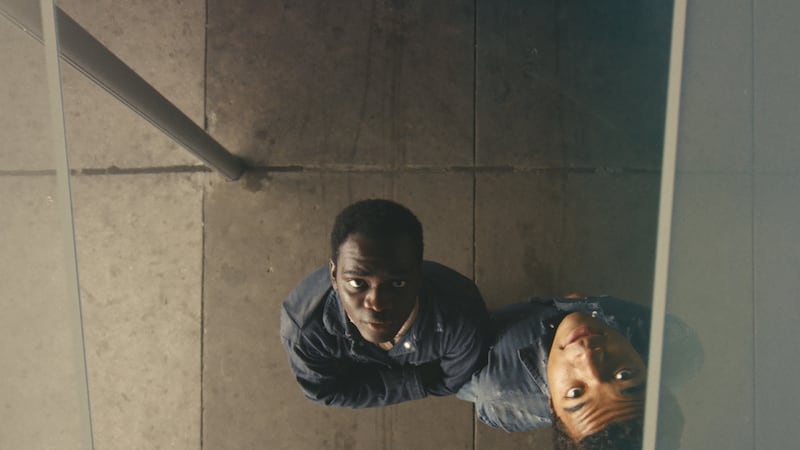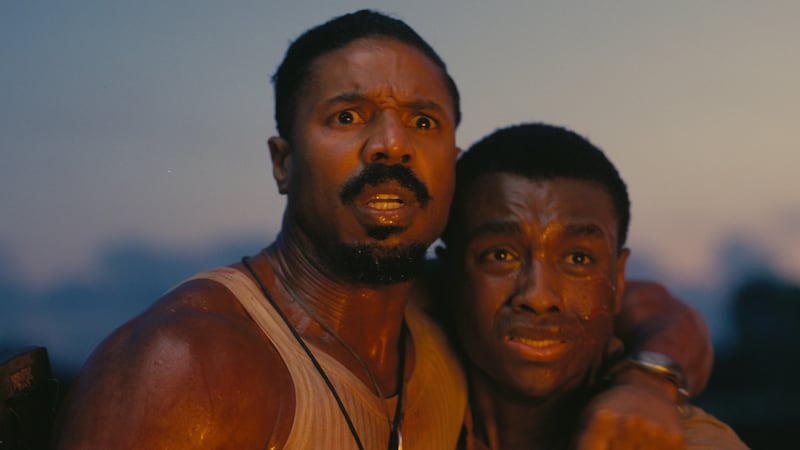‘Nickel Boys’ is a bold, uncomfortable, and personal look into racial prejudice, oppression
“We have to be like knights: Checkmate.” - Elwood in ‘Nickel Boys’

PHOENIX (AZFamily) — Walk a mile in somebody else’s shoes.
Synopsis
Nickel Boys follows Elwood Curtis (Ethan Herisse), a young, highly intelligent Black teen growing up in Jim Crow-era Florida. Elwood gets the opportunity of a lifetime when he’s accepted into a tuition-free college program. Unfortunately, he ends up wrongfully accused and convicted of a crime, then sentenced to Nickel Academy, a segregated reform school.
At Nickel Academy, Elwood befriends Turner (Brandon Wilson), another Black student. While the white students at the school are treated well, Elwood, Turner, and other Black students are subjected to mental and physical abuse from the school’s staff. Elwood tries his best to maintain hope that he’ll one day be free, but Turney has a different outlook, believing they’re only destined for oppression and misery.
My thoughts
It’s difficult to truly innovate in the world of visual storytelling in this day and age. Filmmaking has been around for over a century after all, so it seems like everything that can feasibly be done at this point has been. That doesn’t stop filmmakers from trying to experiment and push the boundaries of what audiences expect, though. Sometimes, getting people out of their comfort zone can help them experience art on a different level.
At the same time, you could tell the same story in millions of different ways. If you gave the same script to one million different people, I would guarantee that all one million of them would be unique in their own ways. Even then, most of them would most likely go down the conventional route and direct their actors to read their lines on a set, just like any other movie. However, one voice is hidden in those one million voices, loud enough to do something bold.
Eye of the beholder
Based on Colson Whitehead’s novel and directed and co-written by RaMell Ross (with Joslyn Barnes), Nickel Boys is a film that’s shot and presented almost entirely from a first-person point of view. Throughout 90% of the movie’s runtime, we’re experiencing the story through two POVs: those of the characters Elwood and Turner. During their time at the Nickel Academy in the 1960s, we see literally everything through these characters’ eyes.
It was certainly a bold choice for Ross to tell this story entirely through a first-person perspective, especially since it’s just a straightforward character drama with no action or crazy spectacle. Now, Ross isn’t the first person (no pun intended) to use this perspective when making a movie. The first-person POV has been experimented with before in movies like Lady in the Lake, The Diving Bell and the Butterfly, Maniac, and Hardcore Henry, either telling part of or their entire stories using this method.
Hey, I even found footage movies are “first-person movies” if you really think about them. That’s the thing, though. First-person POV movies are rare, but the ones that aren’t action, horror, or something where the camera can shake around a lot are even more so. Not to mention, they’re incredibly difficult films to make on a logistical level. It’s not how movies are normally made; the cast and crew are forced to exit their comfort zones.
The interesting thing is one could almost classify Nickel Boys as a horror film, especially when you’re seeing through the character’s own eyes. Ross and cinematographer Jomo Fray’s visual language here already has a dreamlike quality with their choice of lenses and aspect ratio. Still, the heinous behavior you see through Elwood’s and Turner’s eyes turns it into a nightmare. You just never get to wake up from it, which is what I’m sure the Nickel Boys felt every moment.
It even gets psychological at times, with editor Nicholas Monsour employing many abrupt cuts to various surreal images, some cosmic, some horrifying, and some a little in between. The haunting music from Alex Somers and Scott Alario brilliantly underscores all of this. Since we don’t see these visions from Elwood until well into his time at the Nickel Academy, it shows how mentally broken he’s been from the whole experience.
Breaking the fourth wall
If there’s one instinct that all professional actors have hammered into them, it’s “don’t look at the camera.” That’s all the actors are doing here, though. Every conversation scene consists of close-up shots where you see every detail and nuance in their performances. It often reminded me of Barry Jenkins’ Moonlight with his use of close-ups with shallow lenses.
At times, it’s a bit awkward having the actors recite their dialogue directly to your face, but their performances are all so good, so it more than makes up for it. Aunjanue Ellis-Taylor as Elwood’s mother Hattie is heartbreaking in so many of her scenes and having her bare her soul directly into the camera makes you feel the impact of her every word.
Ethan Herisse and Brandon Wilson are both fine young actors and they both had pretty difficult roles to tackle. They’re both almost doing a double performance, as the film’s first half is from Elwood’s POV and the second from Turner’s, seeing some of these events play out from both perspectives. They had to put just as much effort into their vocal performance as their physical performance, so you can still feel the gravity in their emotions even when they’re not on camera.
We occasionally cut to the early 2000s where Elwood is now an adult (played by Daveed Diggs) living a decent life in New York City. This is the only time the first-person perspective is broken, as you see Elwood in the frame here, except you only see the back of him. This was achieved by affixing a Steadicam rig to Diggs’ back so he’s always in the frame and tracked by the camera. Also, Diggs is such an awesome actor that all he needs are his voice, back, and shoulders to give such a poignant performance filled with pain and anger.
Even if the first-person convention is broken during these scenes, I wouldn’t call them third-person, but more second-person. We’re not seeing the events through a certain character’s eyes at these moments, but the way these scenes are shot still gives off a voyeuristic quality, like we’re still watching the movie through somebody’s POV. No matter what, Ross wanted to ensure the audience felt like they were in the film rather than simply observing it.
I will admit that the film’s first-person aspect loses its unique appeal after a while, but I commend Ross for going all in on his experiment. I’m sure making a more traditional drama would have been far easier, but Ross decided to push the boundaries and do something different. It’s not just experimental filmmaking for the sake of it, but it actually serves a narrative and thematic purpose where the impact might not have been the same otherwise.
Final verdict
While the Nickel Academy is a fictional school created for the novel and film, the Arthur G. Dozier School for Boys it’s based on was, unfortunately, very real. The school received numerous accusations of abuse and murder over its 111-year operation, which was all but confirmed when an investigation in the 2010s revealed the discovery of dozens of unmarked graves on and around the property. Many of these bodies still have yet to be identified.
Nickel Boys is a sobering reminder of the millions of lives that have been ruined due to racial prejudice. How many young men out there like Elwood also had promising lives ahead of them, only to have it all stripped away by pure hatred and bad luck? Elwood may have been a fictional character created for this story, but his story is one that’s been experienced by millions of others out there. Every victim of oppression, past, present, or future, is Elwood in some way.
That’s why it was essential not just for RaMell Ross to tell Colson Whitehead’s story but to tell it in the way that he did. People often like to keep their eyes averted from reality so they don’t have to confront the harsh truths in life. Ross doesn’t allow the audience to do that here. He forces their engagement and doesn’t allow them to look away. The discomfort is the point, though. You should be disturbed and sickened by what you see on screen here; so much to do whatever you can to prevent anything like this from happening again. The fact that we’re now aware is the most important thing of all.
My rating: 8.5/10
Nickel Boys will be released in limited theaters on Friday, Jan. 17.
See a spelling or grammatical error in our story? Please click here to report it.
Do you have a photo or video of a breaking news story? Send it to us here with a brief description.
Copyright 2025 KTVK/KPHO. All rights reserved.






